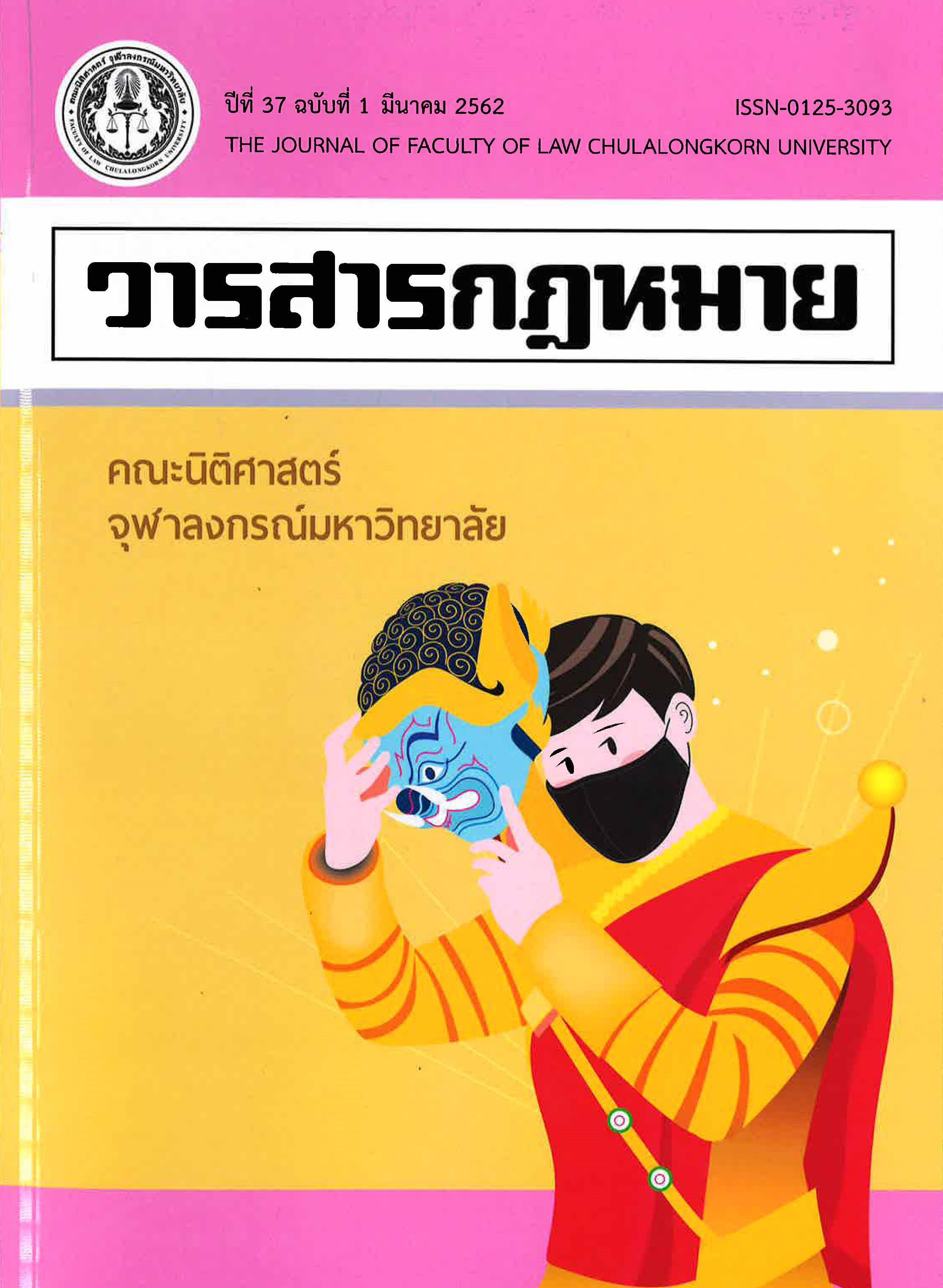A Comparison of Liability of Sellers of Defective Avian Vaccines in the United States and Thailand
Main Article Content
Abstract
Manufactures and seller of defective avian vaccines in the United States are liable to buyers, the great majority of whom are commercial chicken broiler farms (production contract farms), under the implied warranty of sale contract, not under the strict product liability in The Restatement of Tort (second) (Product Liability Law). Sellers of defective avian vaccines in Thailand are liable to buyers, the great majority of whom are also commercial chicken broiler farms (contract farming operators), under the implied warranty of Section 472 of the Thai Civil and Commercial Code (Thai CCC) and also Section 26 of the newly enacted Promoting and Developing Contract Farming Act B.E.2560. Sellers of defective avian vaccines in Thailand are liable to buyers, who are independent chicken broiler farm operators under Section 472 of the Thai CCC. Sellers of defective avian vaccine in Thailand are not liable under the Thai Product Liability Law because buyers in the aforementioned situations are not “consumers” but “commercial end users” of the avian vaccines.
Article Details
The copyright in this website and the material on this website (including without limitation the text, computer code, artwork, photographs, images, music, audio material, video material and audio-visual material on this website) is owned by Chulalongkorn University Law Journal and its licensors.
1. Chulalongkorn University Law Journal grants to you a worldwide non-exclusive royalty-free revocable license to:
- view this website and the material on this website on a computer or mobile device via a web browser;
- copy and store this website and the material on this website in your web browser cache memory; and
- print pages from this website for your use.
- All articles published by Chulalongkorn University Law Journal are licensed under the Creative Commons Attribution 4.0 International License. This permits anyone to copy, redistribute, remix, transmit and adapt the work provided the original work and source is appropriately cited.
2. Chulalongkorn University Law Journal does not grant you any other rights in relation to this website or the material on this website. In other words, all other rights are reserved. For the avoidance of doubt, you must not adapt, edit, change, transform, publish, republish, distribute, redistribute, broadcast, rebroadcast or show or play in public this website or the material on this website (in any form or media) without appropriately and conspicuously citing the original work and source or Chulalongkorn University Law Journal prior written permission.
3. You may request permission to use the copyright materials on this website by writing to journal@law.chula.ac.th.
4. Chulalongkorn University Law Journal takes the protection of its copyright very seriously. If Chulalongkorn University Law Journal discovers that you have used its copyright materials in contravention of the license above, Chulalongkorn University Law Journal may bring legal proceedings against you seeking monetary damages and an injunction to stop you using those materials. You could also be ordered to pay legal costs.
If you become aware of any use of Chulalongkorn University Law Journal's copyright materials that contravenes or may contravene the license above or any material on the website that you believe infringes your or any other person's copyright, please report this by email to journal@law.chula.ac.th.


